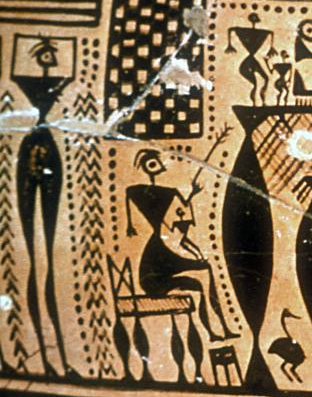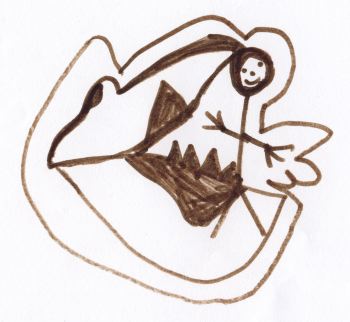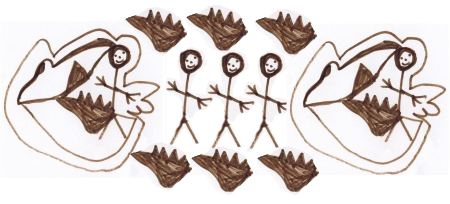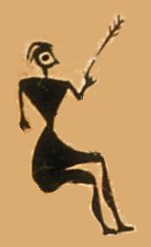
Painting From Life vs. From Photos

Detail from funeral pyre scene on an Attic Geometric krater, second half of 8th century BC

Man being eaten by a crocodile, first half of 21st century AD
The ceramic painting above I borrowed from Victor Bryant’s excellent ceramics website. The drawing on paper is by Fran, who is almost five years old.
The images are similar in that they both depict narrative scenes, and both make use of simple geometric shapes. The vase painting probably represents top quality artwork of its era, making use of a consistent representational system which covers this large vase and many others (presumably painted by many different adults working over many years). The children’s drawing is a one-of-a-kind sketch.
At first glance, the vase painting seems like children’s art made by adults. A key factor that distinguishes the adult work is the consistent repetition of patterns — across the detail, across the vase and across the historical period. There is a discipline here that is alien to the work of a child drawing as play. This use of repetition has substantial advantages. It imparts rhythm and complexity to the work that is lacking in Fran’s image. Repetition creates a decorative effect that masks to some degree the simplicity of the representation. For the sake of comparison, we can apply repetition to Fran’s image:

We can also isolate a figure from the vase painting. With these simple digital manipulation we have not transformed Fran into an Attic geometric vase painter, or turned the vase painter into a child. We have, I think, narrowed the gap.

What I think is interesting here is that what presumably passed for fine work in the 8th century BC probably could be made by children, if they were compelled to work within a disciplined productive system (as the adults were).
Discipline and rigid compliance to style are factors that are quite contrary to our modern notions of art, however. Is the ancient vase painting art, or is it nothing more than systematized children’s decoration?